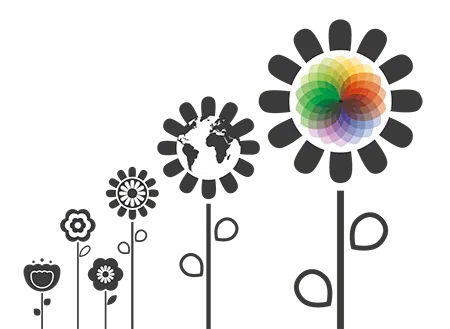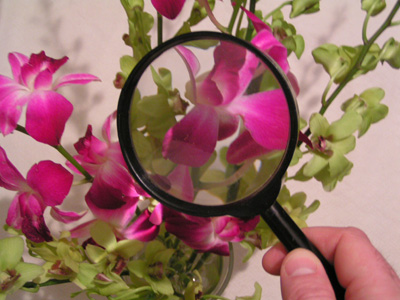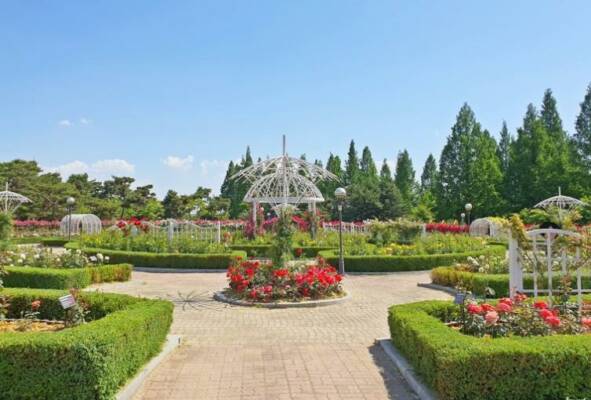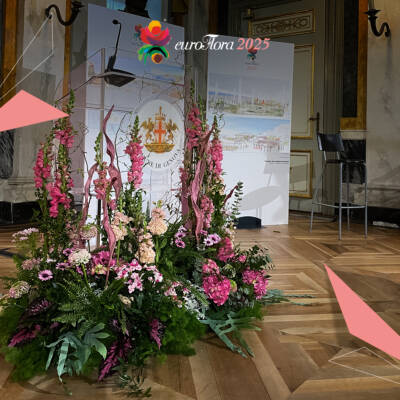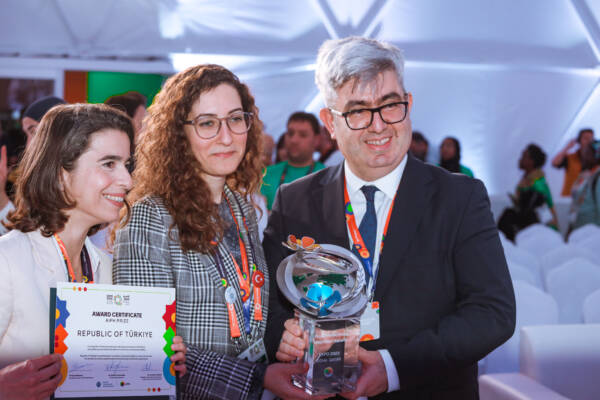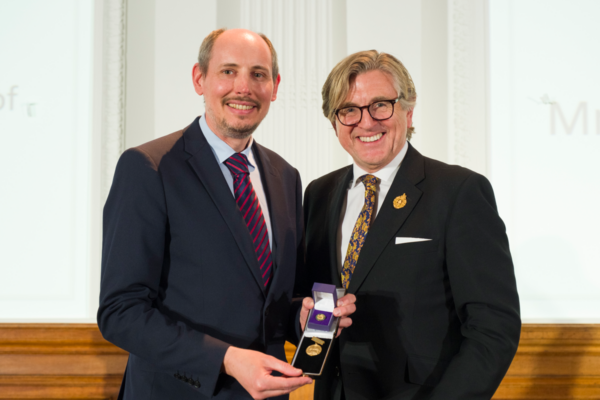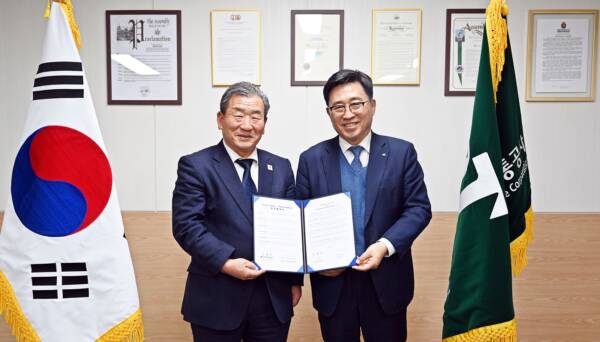The event was organised by AIPH member in Italy ANVE (Association of Nursery Exporters) and took place on the 11th National Day for Mediterranean Nursery Gardening. The convention brought together key stakeholders (technical experts and institution representatives) to discuss Regulation (EU) 2016/2031 – the new EU Plant Health legislation concerning protective measures against pests of plants which comes into force from 14th December 2019.
At the Convention, Dr Audrey Gerber, Technical Advisor for AIPH, presented the following statement on behalf of the association’s Ornamentals Production Committee:
The International Association of Horticultural Producers, AIPH, aims to stimulate an increased demand for ornamental trees, plants, and flowers worldwide. To stimulate demand, we undertake and support activities that demonstrate to customers and decision-makers the benefits of plants to our lives and our built environment. For horticultural businesses to meet an increased demand, it is important that any barriers to supply are removed or reduced. Plant health concerns are potentially a significant barrier to international trade and is a key area of our AIPH strategy. It is our view that the industry should take a proactive role in preventing the spread of pests and diseases and take the long term view for a sustainable plant trade.
Good biosecurity is delivered when well thought out regulations are prepared by competent, professional authorities, and are interpreted by competent, professional operators. The regulations now in place were established and reviewed by the best of the European Authorities, and are aligned with the position of the International Plant Protection Convention. This gives AIPH confidence that they are reasonable and useful regulations. What we need to make sure of now, is that they are correctly delivered by competent authorities across Europe, and uniformly and correctly interpreted by our horticultural industry across Europe and beyond. The industry needs to think about the Biosecurity continuum, identifying and preparing for risks beyond the EU border, at the border, and within the EU. These regulations tighten up activities and standards, and move towards greater traceability.
There are many positive features of these regulations.
Plants entering the EU from third countries will come under greater scrutiny, and AIPH believes that this is a positive step forward. All plants will need plant passports to move across borders, requiring a phytosanitary certificate which gives more guarantee that plants entering the EU are free of EU quarantine organisms.
The new regulation has new rules regarding the growing medium attached to or associated with, the plants. No soil is permitted, only peat or cocos are acceptable, and of course, sterile medium of in-vitro plants. For some products this makes trade difficult, for example, large trees.
Under the new regulations, 35 plant genera/species that are considered to contribute risk of introducing quarantine organisms will be prohibited for import into the EU unless the National Plant Protection Organisation of the third country formally applies for a derogation. This would require a pest risk assessment to be submitted which shows that there is no risk of introduction of quarantine organisms into the EU. As far as we are aware there are not yet many third countries who have asked for derogations.
AIPH does have some concerns about these regulations in relation to third countries. Two points in particular need clarification.
All operators must attach to the plant passport some data which notifies of the original country of production. It is not clear what time period is associated with the definition of country of origin. In some countries, this time period is set at one growing season for woody plants and 4 weeks for indoor plants. Some pathogens can lie dormant in plant tissue for many years. If this point is not clarified, it allows for different interpretation that reduces the power of these regulations to deliver reasonable risk management through full traceability.
The regulations demand that the Competent Authority in each Member State will ensure that Professional Operators are capable and competent to perform the required task and duties. Yet the regulation does not give guidance on how this should be done, nor what standard is required for a Professional Operator. This raises the possibility that different countries will have different standards, with some implementing formal qualifications that professional operators will be obliged to obtain, and some tolerating less stringent requirements. AIPH believes that it is important that an agreed standard is set, and that protocols are reviewed and checked by external, independent auditors.
Many of the details and requirements for import inspections, sample size, border control posts, other inspection facilities, transit, documents, certificates, fees and charges are still to be confirmed. Until these are decided, the costs for grower and importer and how this may affect trade, remain unknown.
To conclude, AIPH believes that these new regulations make an important contribution to reducing the introduction of new quarantine organisms into the EU and preventing their spread within the EU. This is of great importance not only for our industry, but also for greening of public spaces We reinforce the need to use these regulations for full traceability which allows a problem to be tracked back to source and forward to as-yet-unknown areas of infection. Plant passports and a regulatory framework manage risk, yet still, require the horticultural industry to responsibly interpret and implement procedures and activities that support these regulations.
Stricter legislation for trade is not the only solution.
Many entrepreneurs place too much focus on low costs and not enough on quality. The production of seeds, cuttings and young plants in third countries is commonly cheaper than in Europe. While this creates good business opportunities, growers and importers must be aware of the risks of introduction and spread of new pests and diseases, not only for their own company but also for the rest of the sector and public green space. We all share a public responsibility.
Movement of horticultural products covers great distances through import and export. Use of electronic information will become more and more important to prevent barriers in the chain. There will be a greater focus on process management. With this, each stakeholder will have to accept responsibility for their part of the chain and make the required guarantees to the next stakeholder in the chain
So what needs to improve?
The industry would benefit from a uniform approach to compensation. Different countries currently have vastly different approaches to compensation for loss of product and income due to measures to prevent establishment and further spread of a quarantine disease or pest.
We need general guidelines for prevention to clarify what we mean by prevention.
The introduction of early warning systems would enable early and effective response to potential threats
All sectors of the horticultural industry would benefit from improved knowledge of pathogenic organisms, pathways and risks. Training is what is needed here.
AIPH encourages more cooperation between Member states, not only on government level but also throughout the industry.
Most important to remember is that we need awareness through the whole supply chain; it is not the responsibility of any single link of the chain.
Adding to Dr Gerber’s presentation, Mr Tim Edwards, Chair of AIPH’s Ornamentals Production Committee, said: “I believe the regulations put in place measures that attempt to identify risk and, importantly, allow full traceability if and when a problem is found”.
For more information on AIPH’s work with Plant Health contact: Dr Audrey Gerber: audrey.gerber@aiph.org

